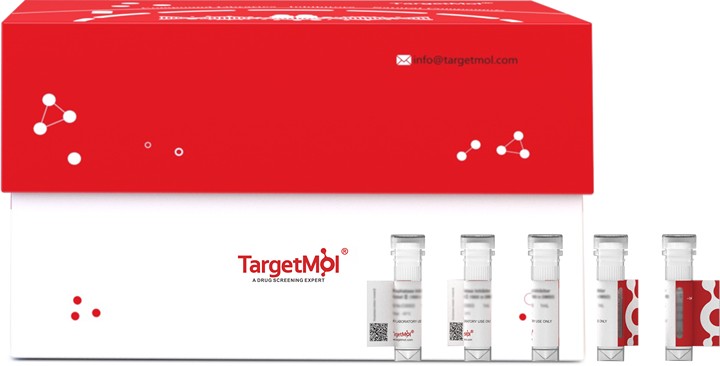- Remove All
 Your shopping cart is currently empty
Your shopping cart is currently empty
ACOD1 Protein, Mouse, Recombinant (His & Myc)
Cis-aconitate decarboxylase that catalyzes production of itaconate and is involved in the inhibition of the inflammatory response. Acts as a negative regulator of the Toll-like receptors (TLRs)-mediated inflammatory innate response by stimulating the tumor necrosis factor alpha-induced protein TNFAIP3 expression via reactive oxygen species (ROS) in LPS-tolerized macrophages. Involved in antimicrobial response of innate immune cells; ACOD1-mediated itaconic acid production contributes to the antimicrobial activity of macrophages. Involved in antiviral response following infection by flavivirus in neurons: ACOD1-mediated itaconate production inhibits the activity of succinate dehydrogenase, generating a metabolic state in neurons that suppresses replication of viral genomes. Plays a role in the embryo implantation.

ACOD1 Protein, Mouse, Recombinant (His & Myc)
| Pack Size | Price | Availability | Quantity |
|---|---|---|---|
| 20 μg | $491 | 20 days | |
| 100 μg | $1,500 | 20 days | |
| 1 mg | $3,260 | 20 days |
Product Information
| Biological Activity | Activity has not been tested. It is theoretically active, but we cannot guarantee it. If you require protein activity, we recommend choosing the eukaryotic expression version first. |
| Description | Cis-aconitate decarboxylase that catalyzes production of itaconate and is involved in the inhibition of the inflammatory response. Acts as a negative regulator of the Toll-like receptors (TLRs)-mediated inflammatory innate response by stimulating the tumor necrosis factor alpha-induced protein TNFAIP3 expression via reactive oxygen species (ROS) in LPS-tolerized macrophages. Involved in antimicrobial response of innate immune cells; ACOD1-mediated itaconic acid production contributes to the antimicrobial activity of macrophages. Involved in antiviral response following infection by flavivirus in neurons: ACOD1-mediated itaconate production inhibits the activity of succinate dehydrogenase, generating a metabolic state in neurons that suppresses replication of viral genomes. Plays a role in the embryo implantation. |
| Species | Mouse |
| Expression System | Baculovirus Insect Cells |
| Tag | N-10xHis, C-Myc |
| Accession Number | P54987 |
| Synonyms | IRG1,Immune-responsive gene 1 protein,Cis-aconitic acid decarboxylase,Cis-aconitate decarboxylase,CAD,Aconitate decarboxylase 1,Aconitate decarboxylase |
| Amino Acid | MMLKSVTESFAGMIHGLKVNHLTDGIIRRSKRMILDSLGVGFLGTGTEVFHKVTQYSKIYSSNTSSTVWGRPDFRLPPTYAAFVNGVAVHSMDFDDTWHPATHPSGAVLPVLTALSEALPQIPKFSGLDLLLAFNVGIEVQGRLMHFSKEAKDIPKRFHPPSVVGTLGSAAAASKFLGLSLTKCREALAIAVSHAGAPIANAATQTKPLHIGNAAKHGMEATFLAMLGLQGNKQILDLGSGFGAFYANYSPEDLPSLDSHIWLLDQQDVAFKSFPAHLATHWVADAAAAVRKHLVTPERALFPADHIERIVLRIPDVQYVNRPFPDSEHEARHSFQYVACASLLDGSITVPSFHSQQVNRPQVRELLKKVKLEHPPDNPPSFDTLYCEISITLKDGTTFTERSDTFYGHWRKPLSQEDLRNKFRANASKMLCRDTVESLITVVEKLEDLEDCSVLTRLLKGPSVQDEASKLSSMSSFDHTTLPRFTNI |
| Construction | 1-488 aa |
| Protein Purity | > 85% as determined by SDS-PAGE. |
| Molecular Weight | 58.3 kDa (predicted) |
| Endotoxin | < 1.0 EU/μg of the protein as determined by the LAL method. |
| Formulation | If the delivery form is liquid, the default storage buffer is Tris/PBS-based buffer, 5%-50% glycerol. If the delivery form is lyophilized powder, the buffer before lyophilization is Tris/PBS-based buffer, 6% Trehalose, pH 8.0. |
| Reconstitution | Reconstitute the lyophilized protein in sterile deionized water. The product concentration should not be less than 100 μg/mL. Before opening, centrifuge the tube to collect powder at the bottom. After adding the reconstitution buffer, avoid vortexing or pipetting for mixing. |
| Stability & Storage | Lyophilized powders can be stably stored for over 12 months, while liquid products can be stored for 6-12 months at -80°C. For reconstituted protein solutions, the solution can be stored at -20°C to -80°C for at least 3 months. Please avoid multiple freeze-thaw cycles and store products in aliquots. |
| Shipping | In general, Lyophilized powders are shipping with blue ice. Solutions are shipping with dry ice. |
| Research Background | Cis-aconitate decarboxylase that catalyzes production of itaconate and is involved in the inhibition of the inflammatory response. Acts as a negative regulator of the Toll-like receptors (TLRs)-mediated inflammatory innate response by stimulating the tumor necrosis factor alpha-induced protein TNFAIP3 expression via reactive oxygen species (ROS) in LPS-tolerized macrophages. Involved in antimicrobial response of innate immune cells; ACOD1-mediated itaconic acid production contributes to the antimicrobial activity of macrophages. Involved in antiviral response following infection by flavivirus in neurons: ACOD1-mediated itaconate production inhibits the activity of succinate dehydrogenase, generating a metabolic state in neurons that suppresses replication of viral genomes. Plays a role in the embryo implantation. |
Dose Conversion
Calculator
Tech Support

Copyright © 2015-2025 TargetMol Chemicals Inc. All Rights Reserved.


